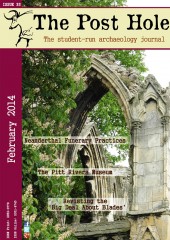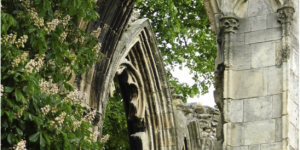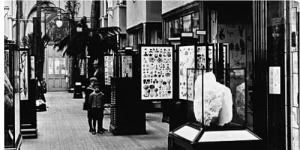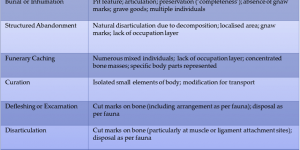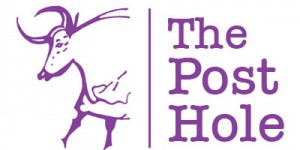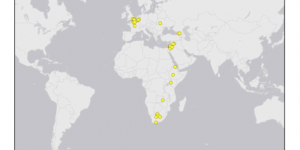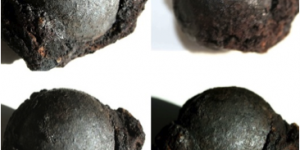Each time I write this editorial, I think of what is happening within the discipline and current media reports. I always end up questioning what is archaeology and what determines our definition, The Post Hole – a student run archaeological journal.
At universities, the discipline is broken up into Historical Archaeology, BA Archaeology, Archaeological Science and so on. I wish to merely pose the question, should we separate archaeology into different categories? I understand that the discipline is split in order for degree and teaching programmes to be balanced out, however, once this study is completed and you graduate, must this term solely define your interests? Are you regimented by the term, and labelled either a ‘prehistorical archaeologist’’ or a ‘historical archaeologist’? Faced with questions such as: why did you choose that module and how would you define your interests? – Can archaeology really be split into separate categories?
Today, we have categorised history into separate periods, in order to help learning and accessing the past easier, but really the past is one long evolutionary process, each period affected by that before and affecting the one after. This evolutionary process continues up to the present day. Our lives are one long process, split by age categories, rites of passage at certain times; 16, 18, 21, 30, 50 and marked by key events; birth, marriage and death. However when we refer to ourselves in interviews and conversations, we don’t define ourselves completely by these processes; they are only a factor adding to our personality. So, the question I ask you is, should we define archaeology into categories? For practical reasons, possibly, but as each category is individual, it is also interlinked with the others. That leads onto the question, can we really teach archaeology? Each new piece of research changes the way we think about the past and interpret our surroundings, so the question is if we can teach archaeology, can it keep up with the quickly changing, greatly improving discipline? Archaeology is a complex field, and an interesting one, and one that I hope will continue for future generations to enjoy, as we change the past each day with new investigations and research.
In January, we released the second interview in our series ‘Digging through the profession of archaeology'. Through our most recent interview, with Samir S. Patel, readers can explore the profession of journalism and archaeology. We hope to release an interview each month, and we already have February and March’s interviews lined up. These are conducted by Alex Cameron, exploring historical archaeology and archaeobotany with Dr. Sarah Walshaw, and working as a researcher and lecturer with Dr. Matthew Pawlowicz, who holds a position at Virginia Commonwealth University. Information on when these are released will be made available via our Twitter and Facebook pages. As always, if you would like to become involved within this interview series, please email your details to editor [at] theposthole.org.
I would like to introduce a new member of the team to The Post Hole. James Perkins, an undergraduate at UCL, University College of London, joins the team as a PR coordinator at his university. If you would like to become involved with The Post Hole, please email your details and interests to editor [at] theposthole.org.
The last month flew by, and The Post Hole has been up to so much in such a short space of time. Between December and January, we ran our exclusive The Post Hole Photo Competition. Please find the first article within this issue, written by Managing Editor Rianca Vogels, to find out the results and what we are planning to use the images for next. A massive congratulations to Kerrie Hoffman for winning The Post Hole Photo Competition with her superb image, and a big thank you to everyone who contributed images and illustrations. The team were overwhelmed by the number of entries and we received some excellent images.
Imogen Burrell, explores ‘whether the Pitt Rivers Museum is a ‘real museum’ or a museum of museums’. Burrell provides a background history to the museum, then delves into exploring the museum’s content and how it operates. A stimulating and appealing article, it is well worth a read.
PhD Archaeology Student, Sarah Schwarz, explores ‘Neanderthal Funerary Practices: Complexity and Variation in Structured Responses to Death’. The article covers some sensitive issues, and Schwarz provides a thought-provoking and engaging piece. For those of you who attended the first ASA Conference in York, June 2013, you may recognise this paper.
Taryn Bell provides an interesting perspective that I hope will provoke some debate surrounding whether ‘archaeology should be more multidisciplinary’. The article links well with the opening paragraph of this editorial, and gives you readers some food for thought. It would be excellent if we could get some responses to this article, and publish them in the next issue. Please send any in to submissions [at] theposthole.org.
Christian S. Hoggard explores the ‘Big Deal about Blades’: a full contextualisation of prismatic (volumetric laminar) technology before Marine Oxygen Isotope Stage (MOIS) 5. An interesting and well executed article, we are extremely lucky to have this paper, as Hoggard is a PhD/MPhil Archaeology Postgraduate Student at the Centre for the Archaeology of Human Origins (CAHO), University of Southampton.
The last article covers a controversial topic. Will Engelen explores the actual role of a metal detectorist in ‘Archaeology versus metal-detecting (and/or magnet-fishing)’. Like Taryn Bell’s article, it would be interesting to get some responses to this article and feature them on the website, alongside our poll ‘how could relations between archaeologists and metal detectorists be improved?’
Finally, I have only been Editor-in-Chief of The Post Hole since September, however I would like to say a big thank you to all our readers for the articles they contribute and the regular feedback we get. The Post Hole relies heavily on our readers, and without you, we wouldn’t have been as successful as we are today. The Post Hole may be run by a team in York, but with a number of PR coordinators across the country and further afield, the journal is still growing. The team are about to face some important deadlines soon, with undergraduate dissertations nearing completion date and others facing important decisions about future study or prospects into the big wide world, and we thank you for your continuing support and patience as we publish each issue and new feature. We hope to be able to continue running for many more years and expanding our impact further. Please continue sending your submissions into submissions [at] theposthole.org and any questions to myself at editor [at] theposthole.org.
Best wishes,
Emily Taylor|
(Editor-in-Chief of The Post Hole - editor [at] theposthole.org)


